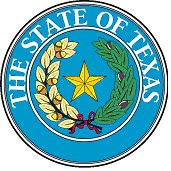If the time is right to buy yourself some land in Texas for a retreat or bug-out location, you should be aware that buying land in Texas is no different than buying land anywhere else. You will need to be careful and make the right choices. This will insure that the Texas land that is for sale meets your needs. You should also be aware of the important legal issues that are involved.
What is a Land Deed?
The definition of a Land Deed in Texas is the same as most everywhere else. It is a legal document designed to transfer real estate property in the State of Texas. There are two types of deeds which are primarily used for the transfer of ownership of land in Texas. The first one is the Warranty Deed and the other one is the Quit Claim Deed.
The Warranty Deed
The Warranty Deed lives up to its name. It is used when the seller of Texas land uses the Deed to make certain guarantees to the buyer of Texas land. There are three basic parts (or covenants) associated with the Warranty Deed.
1.) The Covenant of Seishen in which the seller of Texas land guarantees that they own the piece of Texas land they are selling to the buyer and that they, indeed, have the right to sell it.
2.) The Covenant Against Encumbrances, in which the seller of Texas land guarantees to the buyer of Texas land that the Texas property they are selling (or the piece of Texas land) is free of encumbrances or claims against it such as mortgage liens, tax liens or any other form of liens.
3.) The Covenant of Quiet Enjoyment in which the seller of Texas land guarantees to the buyer that, after the sale, should anyone show up and try to lay claim to the piece of Texas land that has been purchased by the buyer, the seller will defend the buyer’s rights to the Texas land they have bought from the seller.
Generally speaking a seller and buyer are free to negotiate and agree to alter any of the terms and conditions of a Warranty Deed until they are both satisfied with it, but, in principal, these are the three parts to it.
Quit Claim Deed
Compared to the Warranty Deed a Quit Claim Deed contains none of these guarantees. The basic situation here is that the seller of the Texas piece of land or Texas property tells the buyer: “If I own this piece of Texas land or Texas property, I am selling it to you and you take it “as is.” This is the classic caveat emptor situation – Buyer Beware!
So be careful when purchasing land for your retreat or bug-out location. Make sure you are actually getting what you are paying for and a guarantee that is worth something.
Be aware. Be prepared. Be informed.
Riverwalker
Expert Panel Q&A – Epi-3790
3 days ago












4 comments:
Sounds pretty much like everywhere else.
How about some info on location? Where is there adequate H2O? Where are there small farming communities? Where are there currently members of the TPN (not their addresses, but counties, or so)?
Would the folks who are already there like to do some community or county profiles for those of us who are looking for warmer (though maybe not greener) pastures?
To: nels
Thanks for the input. I will work on your request and hopefully canput together a series of articles profiling different areas and counties in the state - pros, cons, etc. Thanks.
Riverwalker
Get the Warranty Deed. Quit Claim Deeds are okay if your purchasing money is left with you in case of a problem.
GET A WARRANTY DEED!
Good blog, RW
Michael
To: michael
It's really the only kind to get.
Thanks Michael.
RW
Post a Comment